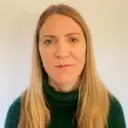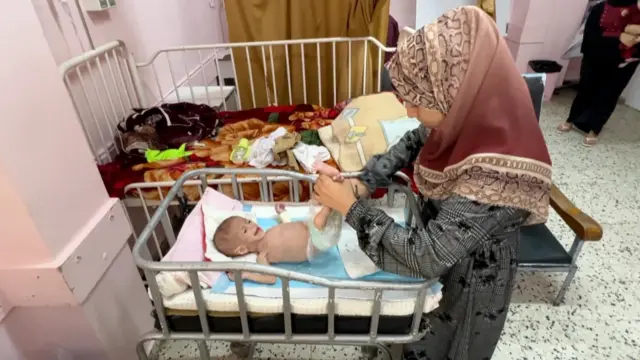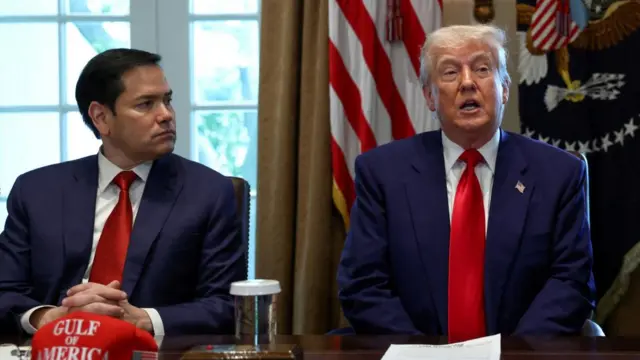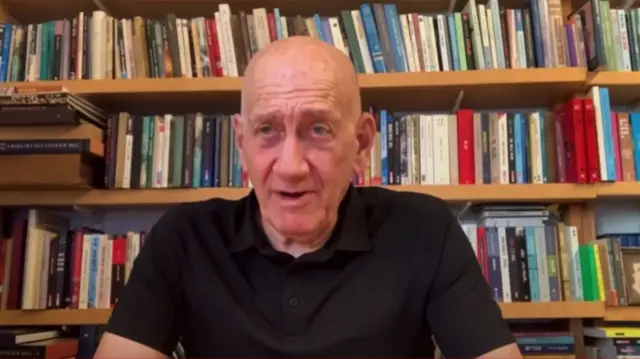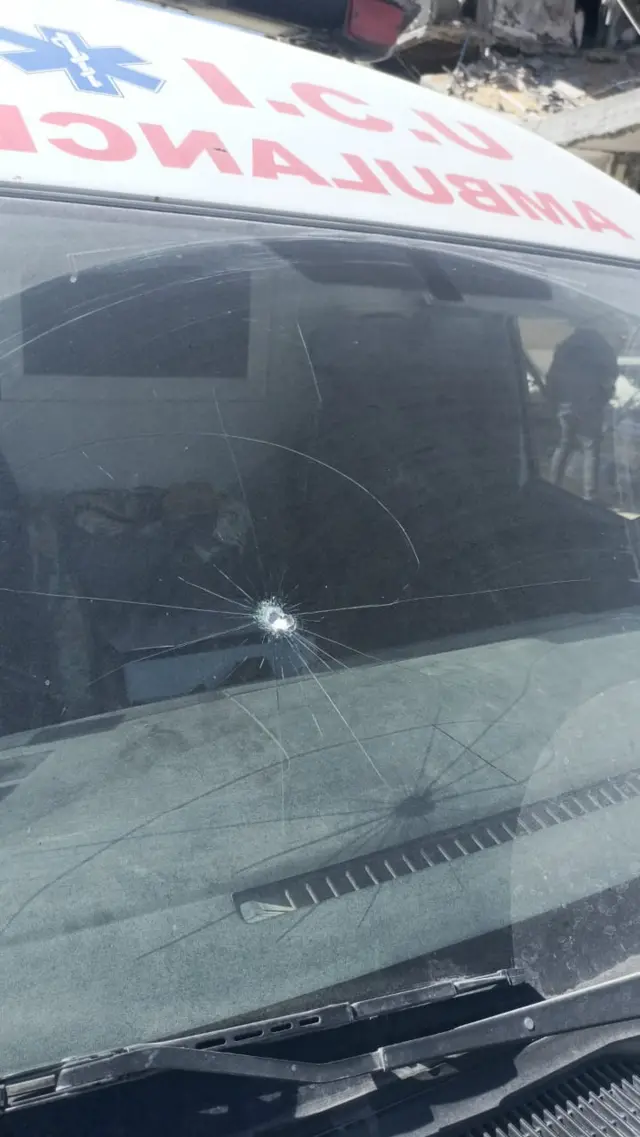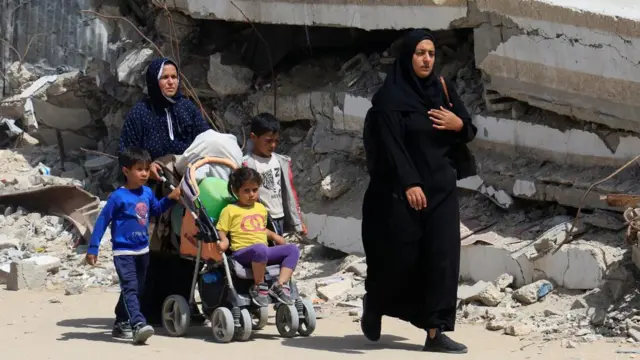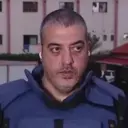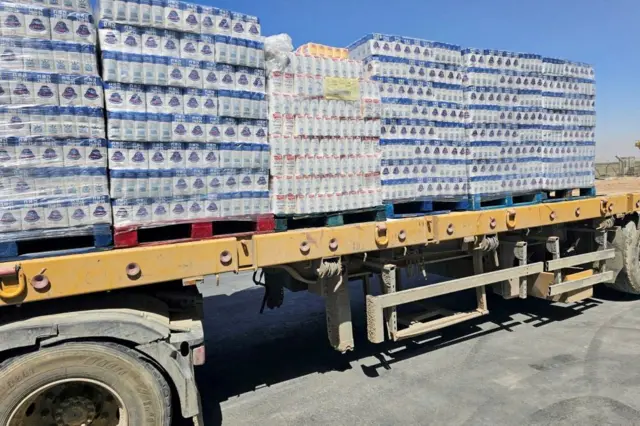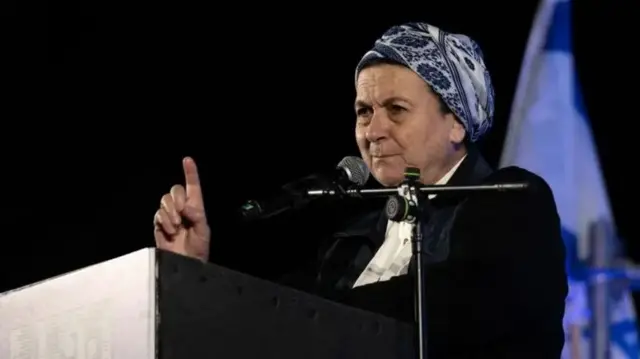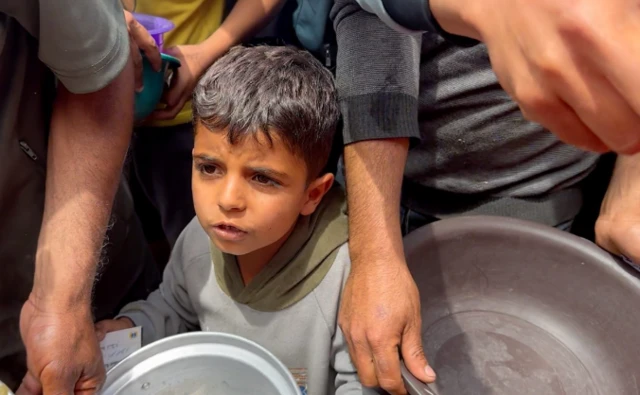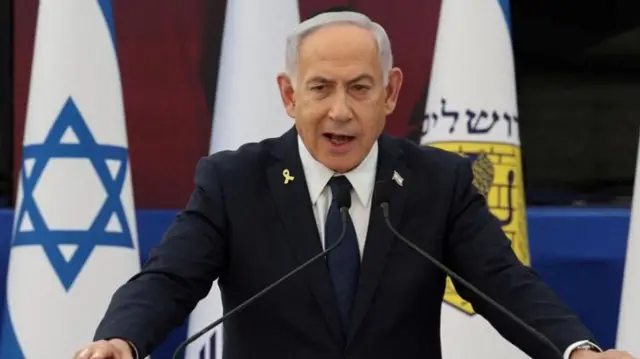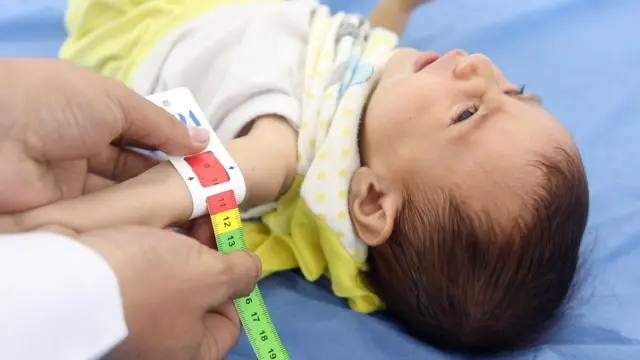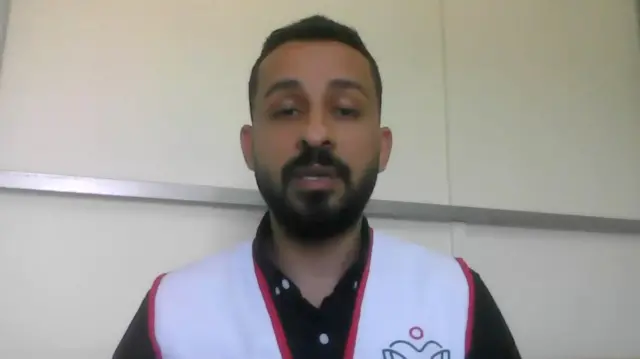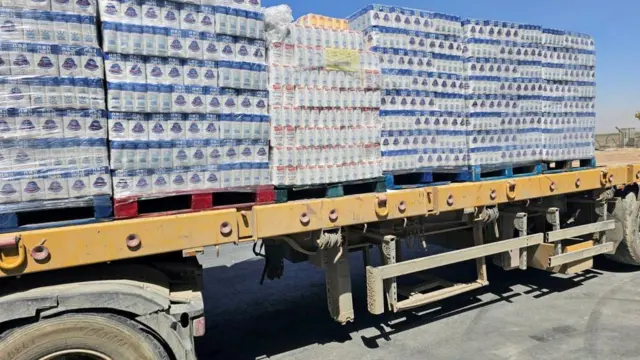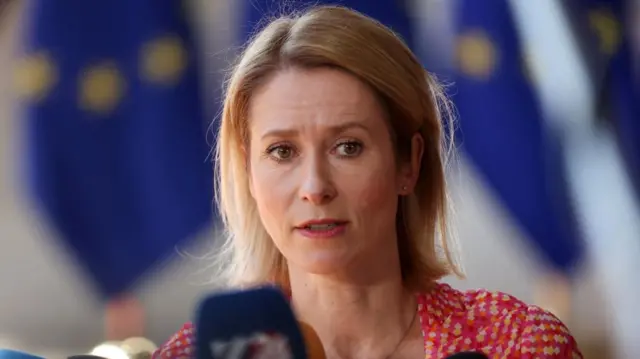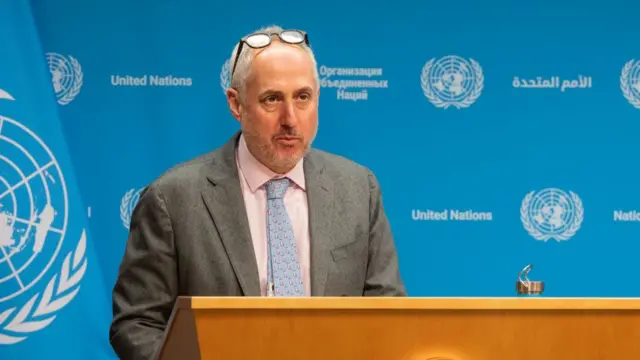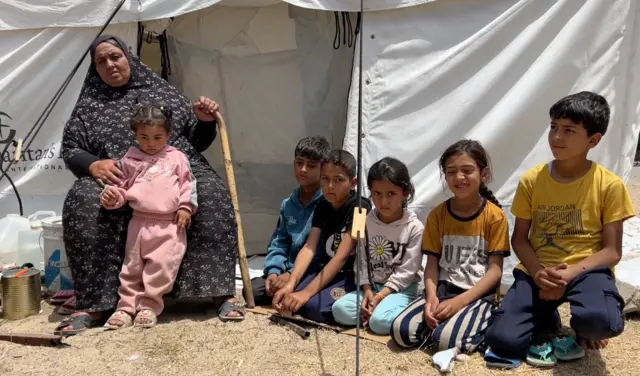No aid in Gaza, UN says, as UK takes measures against Israelpublished at 21:45 BST 20 May
Israel's 11-week blockade of humanitarian aid entering Gaza has ended.
This morning, the UN hoped 100 aid trucks would travel into the Gaza Strip.
By this afternoon, they said that no aid had been distributed in Gaza as supplies hadn't arrived at the organisation's "warehouses and delivery points".
BBC's Rushdi Abualouf says trucks had been parked and waiting at the border crossing for nearly eight hours, having not been allowed to enter the designated area where Israeli trucks usually unload their cargo.
In response, Israel says 93 aid trucks had been transferred to the Gaza Strip today.
UN humanitarian chief, Tom Fletcher, told the BBC earlier that 14,000 babies would die in Gaza in the next 48 hours if aid supplies don't reach them.
Throughout the day, BBC's Alice Cuddy has been speaking to mothers of malnourished children, ambulance drivers and the family of a deceased hostage about the situation in Gaza.
The UK's Foreign Secretary David Lammy said "we are entering a dark new phase of this conflict" as he announced the UK was suspending trade negotiation with Israel.
Hours later, the European Union's foreign policy chief, Kaja Kallas, ordered a review a free trade deal between the EU and Israel.
We're ending our live coverage for the day but you can keep up to date with our news story, a closer look at the UK's actions and analysis from BBC's Jeremy Bowen.
